Die Gitarre sieht auf den ersten Blick klasse aus – schöne Vintage-Optik, Vibrola-Hardware, Palisandergriffbrett. Doch auch hier war der erste Eindruck besser als das, was dann tatsächlich kam.
Der größte Kritikpunkt ist für mich das Gewicht: 3,75 kg sind für eine SG einfach zu viel. Gerade dieses Modell steht eigentlich für Leichtigkeit und Spielkomfort – das ging hier leider komplett verloren.
Auch das Setup war enttäuschend: Saitenlage, Intonation und Pickup-Höhe mussten direkt überarbeitet werden. Dazu kamen unsauber gearbeitete Binding-Kanten, die beim Spielen unangenehm auffielen. Das fühlt sich einfach nicht hochwertig an.
Klanglich war sie besser als andere Epiphone-Modelle, die ich getestet habe – etwas mehr Charakter, etwas mehr Biss. Aber der Ton allein konnte es nicht rausreißen, wenn das Spielgefühl und die Ergonomie nicht passen.
Der mitgelieferte Koffer ist zwar sehr hochwertig, aber wegen eines Koffers kauft man keine Gitarre.
Das Vibrola kann man bekanntermaßen vergessen. Aber das ist ja nichts Neues.
Fazit: Ich wollte diese SG mögen, aber Gewicht, Verarbeitung und Setup haben’s mir schwer gemacht. Hätte sie unter 3,3 kg gewogen und wäre werkseitig besser eingestellt gewesen, hätte ich sie vielleicht behalten.


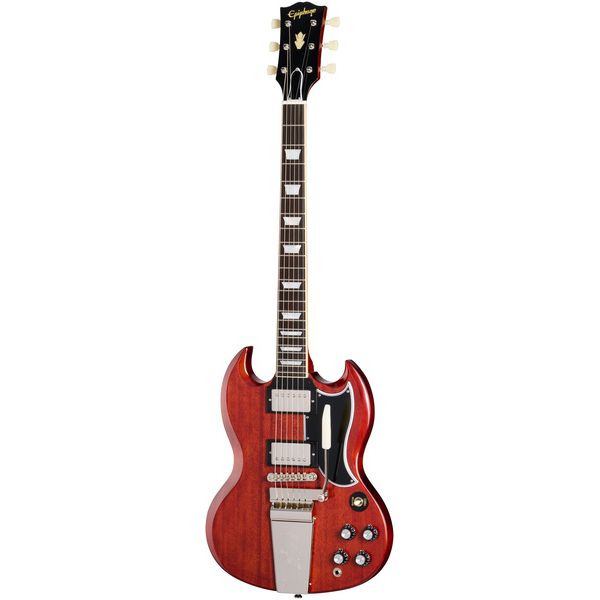
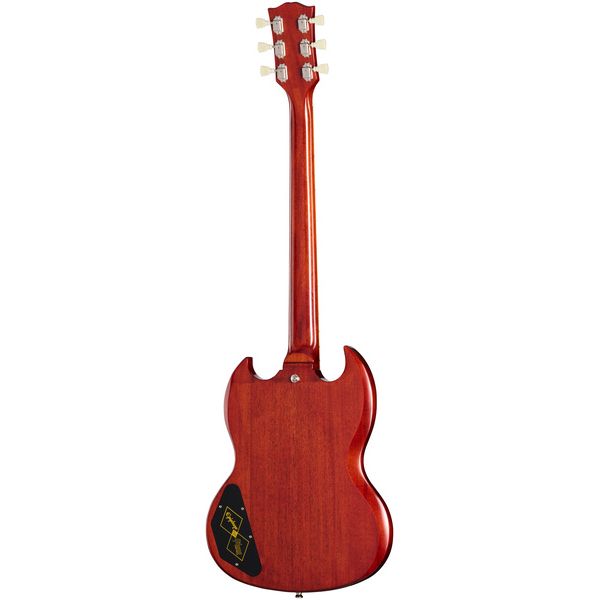
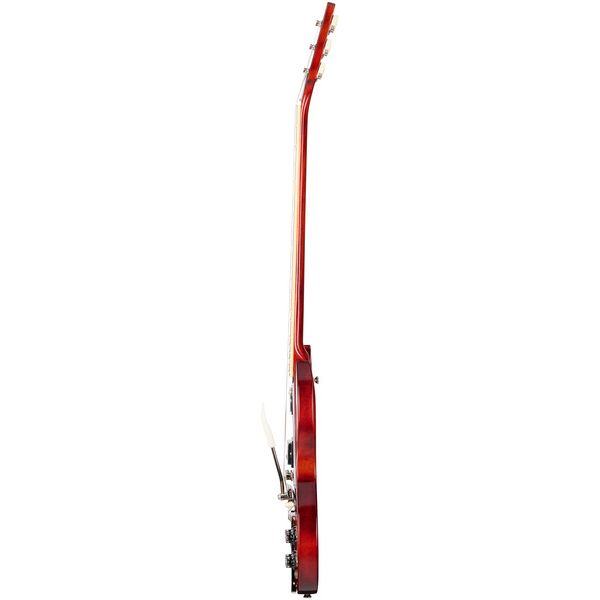
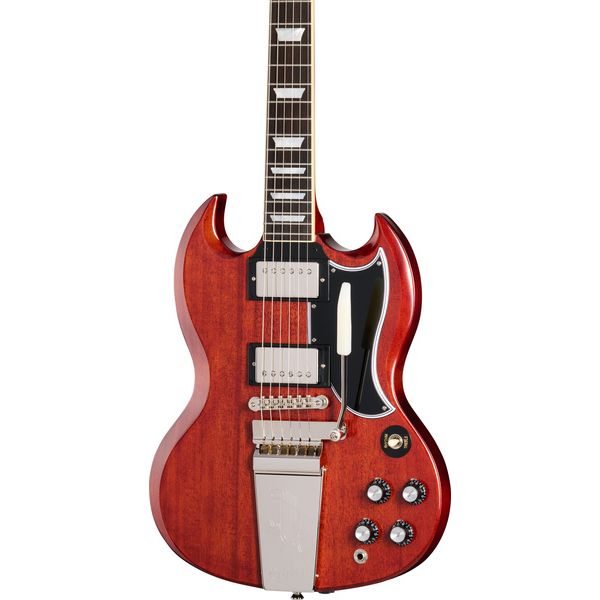
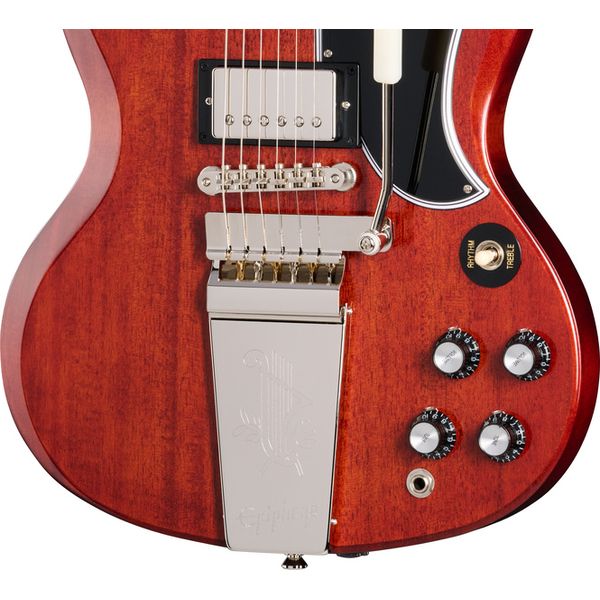
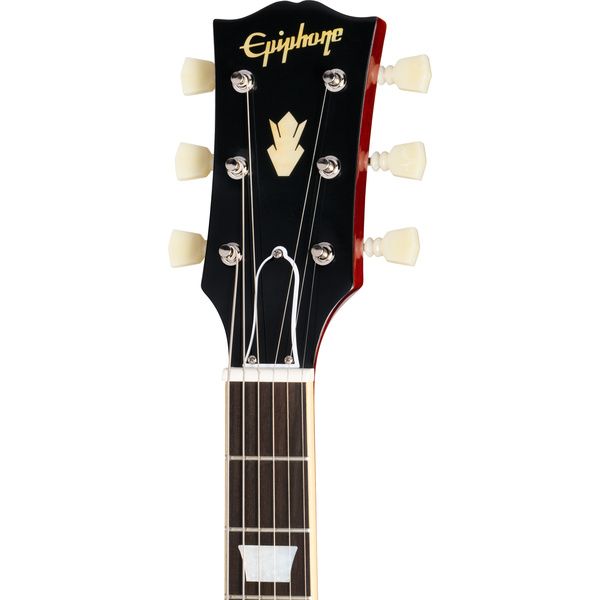
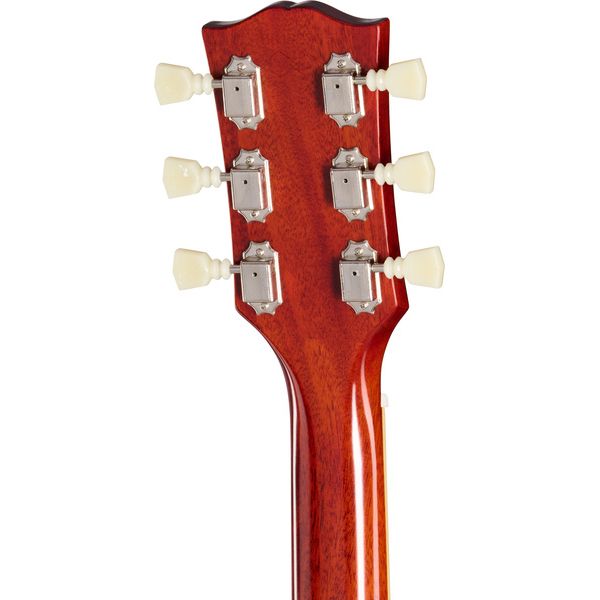








)

)
)
)
)

